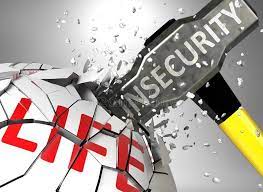Against the backdrop of inequality and alleged discrimination against women in entertainment industry, HELEN OJI takes a look at gender pay gap in that sector.
Globally, it has been reported that the female folks face persistent gender pay gap in line of duty especially in Nigeria’s entertainment industry.
Owing to this, pundits say over the years, it has hindered not only their delivery, but also bruised their ego.
Investigation further revealed that the disparity is more pronounced in Abuja, the nation’s capital with women facing significant barriers to equal pay and opportunities. Consequently, rights advocates say the issue had over time affected their economic well-being, limited their creative potentials and career advancement, not only in the film industry, but in other aspects of entertainment industry.
According to recent global ranking on gender pay gap index, Nigeria ranks 16th compared to 2021 with a gender pay gap of 63.9% and has stayed between 60-63% in the last decade on all sub-indexes, from political participation to economic participation.
Factors responsible for inequality in wealth gender, according to analysts, are pay gaps, gender gaps in financial literacy, life events that influence women’s participation in paid work and ability to accumulate wealth.
Matters arising
In an interview, Joy Dennis, an actress, female actresses earn 45% less than their male counterpart, a practice which she described as discouraging.
According to her, “The situation is discouraging and makes it look as if the male folks can do better than females, but that is not true as the female actresses can actually do better.”
She stated further that the practice is not peculiar to their profession alone, but in music industry, comedy and script writing, where women are not valued but seen as weaker vessels.
“But the truth is that most of female artistes are doing better behind the scene in the entertainment industry even in the FCT where the male tends to be dominating in almost in all the areas in the entertainment industry.
“There is a lack of opportunities for women, which is why you see that few chances are given to women to participate in film projects, music production, comedy shows or script-writing.
“Also, there are limited slots for women in training programmes, workshops and mentorship initiatives.
“So, for me, women’s challenges are not limited to inability to access fund, but limitation in acquiring equipment, studios and other resources have also hindered their ability to produce high-quality content in the industry.
“In terms of connections too, women have few networks to access opportunities, mentorship like their male counterparts.
Mrs Yemi Ojo, another entertainer re-echod same when she said the industry is male-dominated, advising that there should be a bit of balancing in the pay gap.
“You should not pay a male lead actor one million naira and pay a female actress N500,000. Everything should be equal and not based on gender. Most times females are seen as weaker vessels and society believes that anything can be thrown at them and they will not talk. Women should be valued and cared for in all areas of their career.
Also speaking, Mrs Patience Ezekiel, another artiste noted that gender pay gap in entertainment is a reality.
“Between 2022 and 2023, the ratio stood at 64.6% for men and 34.8% for women, across music, comedy and script writing. The gap is quite competitive due to many reasons. Most times, remuneration is done based on many factors; for instance, an upcoming male artiste cannot be paid same amount as an existing female celebrity. In the entertainment industry you earn based on experience and delivery rather than age.”
Men comprise the majority in the industry for now in Nigeria. As at the last national survey on independently produced narrative films and documentaries in the areas of executive directors script editors,and cinematographer, men stood at 61% and women 39%.
Lack of support
The chief executive officer of Qtaby Events, Victoria Nkong puts female to male ratio in the entertainment industry at 2:10.
According to Nkong, the males are more in number in music and comedy.
“No matter how the females work and try to stand their grounds, they are not valued and the few females who are successful are often said to have bribed their ways to the height.
“This for me, is discouraging and the females have to fight ten times harder than our male counterparts to get a stand as a female artist.”
Differing view
Countering the feminine standpoint on gender pay gap, a male actor, Israel James Onyeka, said payment is not gender-based.
“Honestly speaking, ladies are more favoured in the industry, maybe by their nature. You know, in most films, we always have more ladies than the guys. Payment is not gender based in the industry at all.




